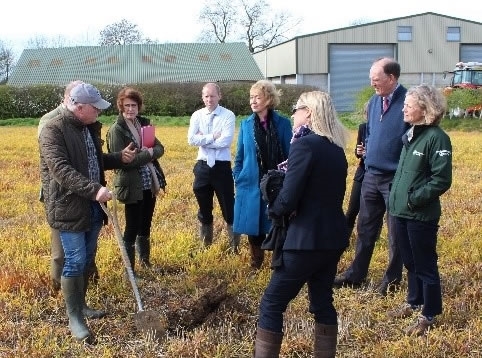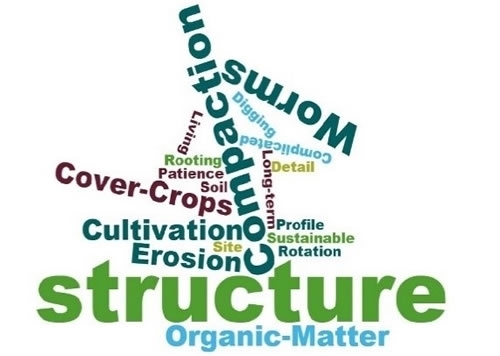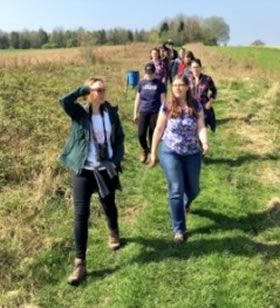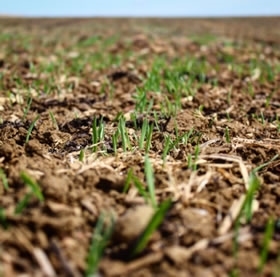By Amelia Woolford, Project Development Officer
Ensuring farming is supported by government policy has never been so important and at the top of our industry’s priorities. With Brexit and the upcoming general election presenting more uncertainty within agriculture, it is paramount that the future interests of food production and farming are heard.
The government often discuss their long-term goal to make Britain a world-leading agricultural and rural nation, especially when it comes to self-sufficiency. The Secretary of State has set out five priorities for action for achieving these aims;
- To improve productivity and competitiveness of the whole food supply chain.
- To increase global demand for British food and drink.
- To strengthen resilience of our agriculture, forestry and fishing sectors.
- To increase sustainability by reducing greenhouse gas emissions and protecting, enhancing and investing in our natural environment.
- To build consumer trust to ensure confidence in the food they buy.
A visit from the Defra Secretary
At the end of March we welcomed Defra Secretary Andrea Leadsom to the Allerton Project. The purpose of the day was to gain an understanding of the Allerton approach to integrated farm management, complete with a farm tour from Farmer Phil.

The visit also gave GWCT and the Allerton Project the opportunity to express our initial views on post-Brexit farming and environment policy, more to follow on this soon.
In the meantime, we met with the CLA policy team to discuss British farming policy moving forward. From this we agreed that farmers must be properly rewarded for environmental delivery. It’s always encouraging to find common ground within the industry;
“It was an incredibly useful and insightful day for us. We look forward to working together over the coming months,” said Jonathan Baker, CLA Senior Policy Adviser.
Successful training days
The project has also been busy with many events and training days. We have recently hosted a national soils days in partnership with the NFU and LEAF as well as a training day for Syngenta. The training day looked at the infield practices and soil armour alongside fertiliser and pesticide application.
There were many take home messages from the day, centring around sustainable intensification and conservation agriculture. Key principles of this include minimum soil disturbance through reduced tillage systems, continuous ground cover and diverse crop rotations. It was great to see the candidates learnt so much - shown in this word infographic:

Our woodland training day focused around woodland planting, establishment and management, which received some strong feedback;
“It was good to focus on regeneration, recovery as well as new and ongoing management. Excellent day, encouraging, inspirational and credible - Plus some great sausage rolls!” – Richard Burkinshaw.
 It’s always great to welcome new groups to the project, this month we gave the ‘Wild Horizons’ group from Rutland Water Nature Reserve a tour around the farm. This group focus on young people who are looking for a career in conservation and arm them with industry knowledge and experience.
It’s always great to welcome new groups to the project, this month we gave the ‘Wild Horizons’ group from Rutland Water Nature Reserve a tour around the farm. This group focus on young people who are looking for a career in conservation and arm them with industry knowledge and experience.
We also had a student group from Harper Adams University studying Environmental Land Management. The tours gave both groups the opportunity to see how farming and environment work hand in hand and the pride that farmers take in caring for the wildlife they have on their farm.
Jim Egan, our head of training and development has been gearing up for some Countryside Stewardship delivery workshops, which are being delivered as part of the Farm Advice Framework contract for Natural England. These events are being held across the country to raise awareness and aid land managers with their applications.
Spring drilling
The farm has been equally as busy with spring drilling and the Longwools going out to grass. However, the dry weather has presented some challenges. Our oats and barley are beginning to come through after being drilled straight into stubble or cover crop residues. This has helped with moisture conservation during the current dry weather, but can also compromise seedbed preparation.
 Direct drilling has led to some varied crop emergence on heavier land where wet conditions at drilling time led to some smearing with the drill.
Direct drilling has led to some varied crop emergence on heavier land where wet conditions at drilling time led to some smearing with the drill.
Our winter crops have come under stress from lack of moisture and cool weather, which is making our decisions for fungicide and fertiliser use more challenging. If the fertiliser isn’t used when conditions are favourable, it can volatilise rather than being washed into the ground.
Drought stress and late frosts after fungicide and growth regulator ‘tank mix’ applications can lead to scorched crops. In other words, there is one farmer in Leicestershire who is doing a rain dance (but not too much)!
In other news we’ve had the results of the Big Farmland Bird Count and hosted another BASIS Conservation Management course, with a 100% pass rate. Our next course is in July.
The project continues rolling on at speed wild bird cover establishment, school visits and our Open Farm Sunday event all coming up, and don’t forget we’re 25 this year, celebrations to be announced shortly.
GWCT Premium Membership
We have launched our most complete membership package - includes insurance and exclusive discounts.
Premium Membership - Join online today